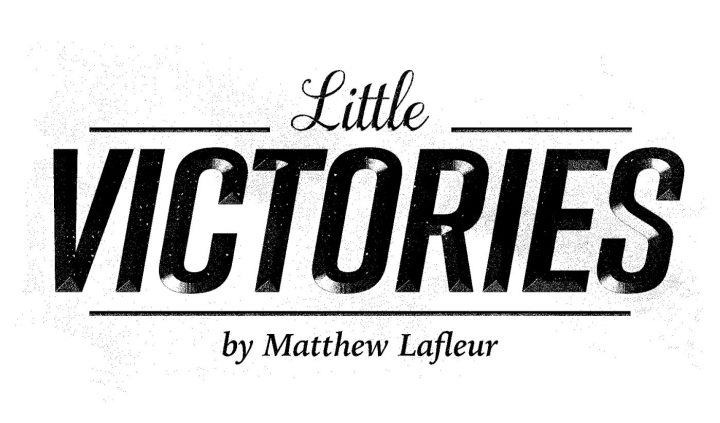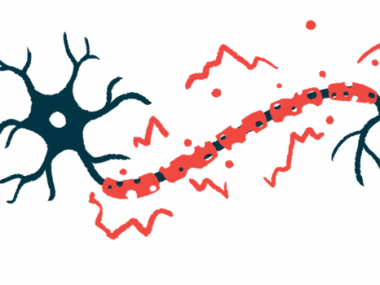I’ve Learned to Face My Reality While Hoping for an FA Cure
Written by |

 I’ve been down this road before and it doesn’t end up anywhere good.
I’ve been down this road before and it doesn’t end up anywhere good.
Following that thought, I swallowed the pill laid out for me and rushed to the bathroom to finish getting ready for school. As a teenager, I was pretty ambivalent. I took whatever medicine my parents gave me. Maybe it was a potential treatment, perhaps not. I didn’t expect to get much benefit from medications either way.
As my genetic disorder, Friedreich’s ataxia (FA), continues to progress, and I become increasingly dependent on others, my belief that “I know I will never get to that stage” diminishes. I have to face the uncomfortable reality that no amount of devoted faith, healthy regimens, or stubbornness can stave off the progression of FA.
Friedreich’s Ataxia News publishes scientific research and news about FA in an easily digestible format. Its patient columnists share relatable experiences, and the website hosts forums with an online community where FAers can find support and information.
When I received my diagnosis, I was a preteen in the mid-1990s. There was no FA community for me to join — and if I’m honest, I wouldn’t have sought one out. Following the establishment of the Friedreich’s Ataxia Research Alliance (FARA) in 1996, I was terrified to see others with FA, especially those whose disease progression was further along than mine. I am ashamed to admit that.
The Friedreich’s Ataxia News forums are a place to connect with other patients, share tips and talk about the latest research. Check them out today!
I believed that with my faith and attentiveness to my health my speech would never become slurred and I wouldn’t need a walking aid in the future.
I write this almost 20 years later, sitting in a wheelchair. Is it a sign of defeat? Does it demonstrate that I am a victim, set on a predetermined path by my genetic disorder?
I’ve come to realize that although hope or faith can’t defeat the juggernaut of FA, whether or not I live as a victim of this genetic disorder is entirely up to me.
***
I remember sitting at a table following a free lunch during my college years. A visiting Christian minister sat next to me and asked to hear my story. I relayed it to him in its entirety, from the insecurity I felt at my diagnosis, to my determination I would find a cure. I told him about the vitamins and medications I’d tried, and healing rituals I participated in, mostly Christian, some nondenominational. I had been dunked in frigid water in France and visited a cabin in New York owned by a minister with healing powers he’d gained following a near-death experience.
I had regularly taken Coenzyme Q10, Buspar (buspirone), idebenone, and other medications and supplements. I’d traveled to a chapel in rural Mexico known for its miracles and tried an antismoking medication with anecdotal benefits for FA patients. I’d been prayed over by priests, ministers, friends, and strangers. I approached all of these potential treatments with great hope. And each of them left me feeling disappointed and hollow. Friedreich’s ataxia was still there.
I learned to face my reality, not with defeat, but with perseverance. I began to wish for a better quality of life in the present, and not only a cure in the future.
As I spoke, the pastor next to me rested his clenched fists on the table and breathed a deep sigh. His youthful curly hair and slight frame demonstrated his inexperience.
He looked straight into my eyes. I was expecting him to offer prayers or words of encouragement. Instead, he said, sounding as if he was about to deliver a profound revelation, “Well, I know one thing. If I had FA, God would not allow me to be in a wheelchair.”
***
Forget that noise.
One thing I’ve learned from the awesome FA community that I am proud to have come to know is that no matter whether we believe in God, science, both, or neither, what’s important is our behavior in the here and now. A person’s character is revealed as he waits for a miracle — even as he acknowledges that it may never come.
In the meantime, I will do what I can to raise awareness and encourage the research of FA.
Friedreich’s Ataxia News has recently reported on promising studies of omaveloxolone and etravirine as treatments for FA. I’m feeling positive about these new developments. Fingers crossed.
As I wait with bated breath for a cure or treatment of FA, I acknowledge that throughout the hopes and disappointments I’ve encountered, I’m still here. And I hope that counts for something.
***
Friedreich’s Ataxia News is strictly a news and information website about the disease. It does not provide medical advice, diagnosis or treatment. This content is not intended to be a substitute for professional medical advice, diagnosis, or treatment. Always seek the advice of your physician or another qualified health provider with any questions you may have regarding a medical condition. Never disregard professional medical advice or delay in seeking it because of something you have read on this website.






Leave a comment
Fill in the required fields to post. Your email address will not be published.